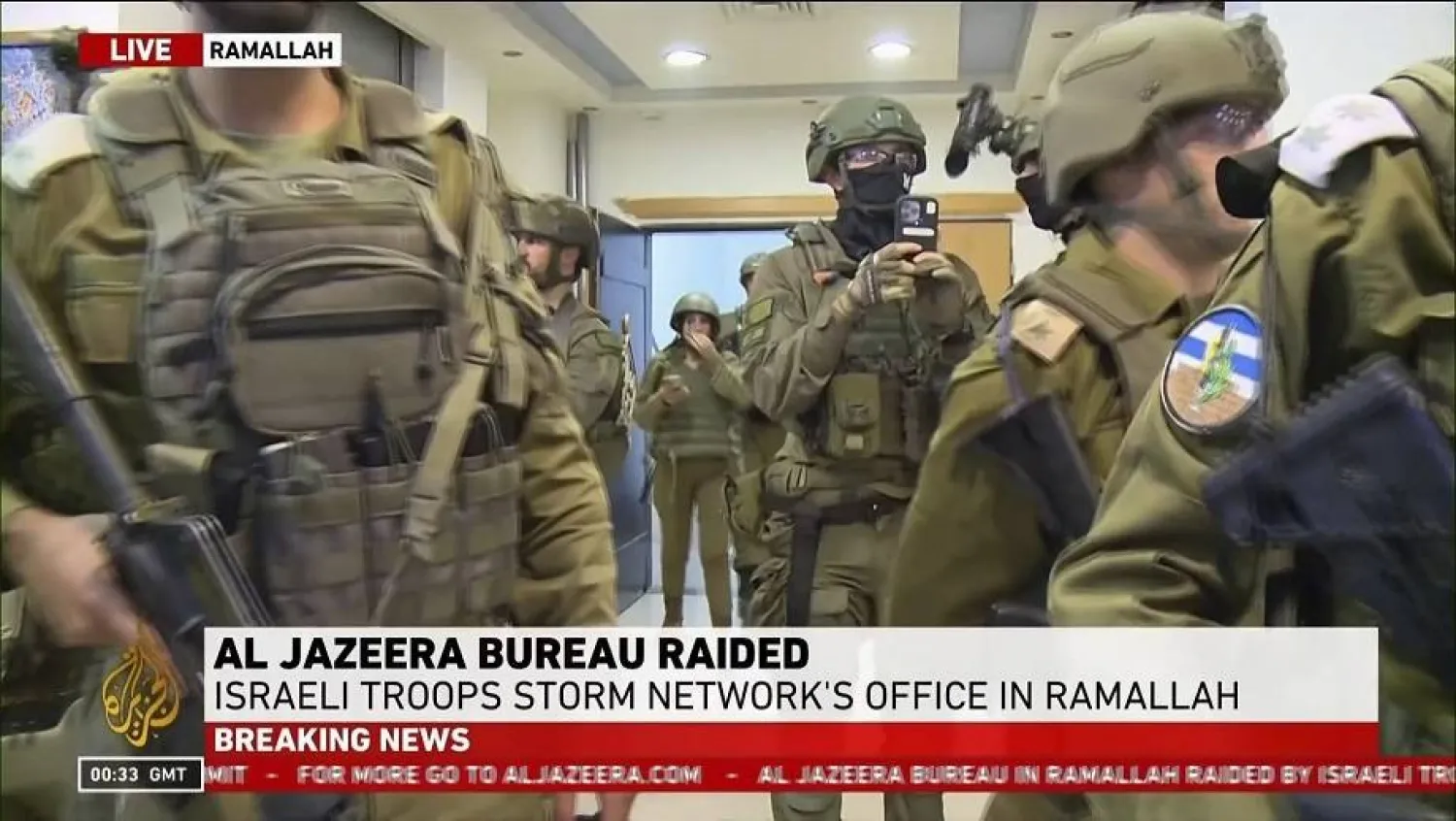Israeli troops raided the offices of the satellite news network Al Jazeera in the Israeli-occupied West Bank early Sunday, ordering the bureau to shut down amid a widening campaign by Israel targeting the broadcaster as it covers the Israel-Hamas war in the Gaza Strip.
Al Jazeera aired footage of Israeli troops live on its Arabic-language channel ordering the office to be shut for 45 days. It follows an extraordinary order issued in May that saw Israeli police raid Al Jazeera's broadcast position in East Jerusalem, seizing equipment there, preventing its broadcasts in Israel and blocking its websites.
The move marked the first time Israel has ever shuttered a foreign news outlet operating in the country. However, Al Jazeera has continued operating in the Israeli-occupied West Bank and in the Gaza Strip, territories that the Palestinians hope to have for their future state.
There was no immediate acknowledgement of the shutdown by Israeli forces. The Israeli military did not respond to a request for comment from The Associated Press. Al Jazeera denounced the move as it continued broadcasting live from Amman in neighboring Jordan.
Armed Israeli troops entered the office and told a reporter live on air it would be shut for 45 days, saying that staff needed to leave immediately. The network later aired what appeared to be Israel troops tearing down a banner on a balcony used by the Al Jazeera office. Al Jazeera said it bore an image of Shireen Abu Akleh, a Palestinian-American journalist shot dead by Israeli forces in May 2022.
“There is a court ruling for closing down Al Jazeera for 45 days,” an Israeli soldier told Al Jazeera’s local bureau chief, Walid al-Omari, in the live footage. “I ask you to take all the cameras and leave the office at this moment.”
Al-Omari later said that Israeli troops began confiscating documents and equipment in the bureau, as tear gas and gunshots could be seen and heard in the area.
The Palestinians secured limited self-rule in Gaza and parts of the occupied West Bank through the 1993 Oslo agreements. While Israel occupies and controls vast areas of the West Bank, Ramallah is under full Palestinian political and security control, making the Israeli raid on the Al Jazeera office that much more surprising.
The Palestinian Journalists Syndicate denounced the Israeli raid and order.
“This arbitrary military decision is a new aggression against journalistic work and media outlets," it said.
The Palestinian Authority administers parts of the West Bank. Its forces were driven from Gaza when Hamas seized power in 2007, and it has no power there.
The network has reported on the Israeli-Hamas war nonstop since Hamas’ initial cross-border attack on Oct. 7 and has maintained 24-hour coverage in the Gaza Strip amid Israel’s grinding ground offensive that has killed and wounded members of its staff. It remains unclear whether the Israeli military would target Al Jazeera's operation in Gaza as well.
The war began when Hamas-led fighters killed about 1,200 people, mostly civilians, in an Oct. 7 attack on southern Israel. They abducted another 250 people and are still holding around 100 hostages. Israel’s campaign in Gaza has killed at least 41,000 Palestinians, according to the Gaza Health Ministry, which doesn’t differentiate between fighters and civilians.
The closure of Al Jazeera's Ramallah office also comes as tensions continue to rise over a possible expansion of the war to Lebanon, where electronic devices exploded last week in a likely sabotage campaign by Israel targeting the militia Hezbollah.
The explosions Tuesday and Wednesday killed at least 37 people — including two children — and wounded around 3,000 others.
Israel Raids and Shuts Down Al Jazeera's Bureau in Ramallah in The West Bank

This image made from video provided by Al Jazeera English shows Israeli troops raiding their bureau in Ramallah, West Bank, Sunday, Sept. 22, 2024. (Al Jazeera via AP)

Israel Raids and Shuts Down Al Jazeera's Bureau in Ramallah in The West Bank

This image made from video provided by Al Jazeera English shows Israeli troops raiding their bureau in Ramallah, West Bank, Sunday, Sept. 22, 2024. (Al Jazeera via AP)
لم تشترك بعد
انشئ حساباً خاصاً بك لتحصل على أخبار مخصصة لك ولتتمتع بخاصية حفظ المقالات وتتلقى نشراتنا البريدية المتنوعة







